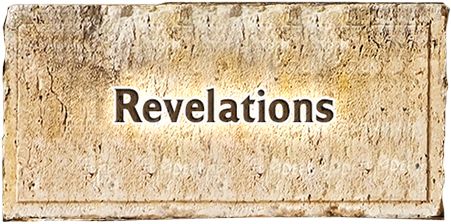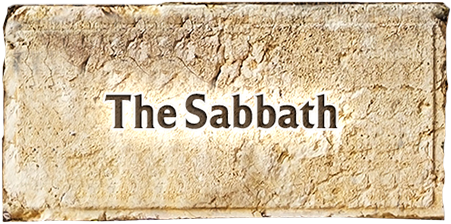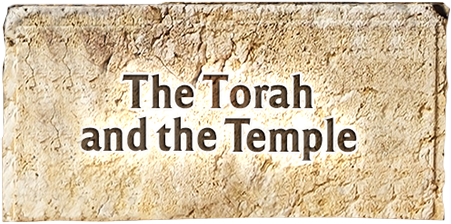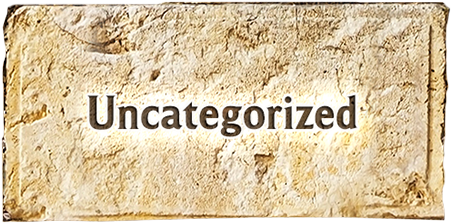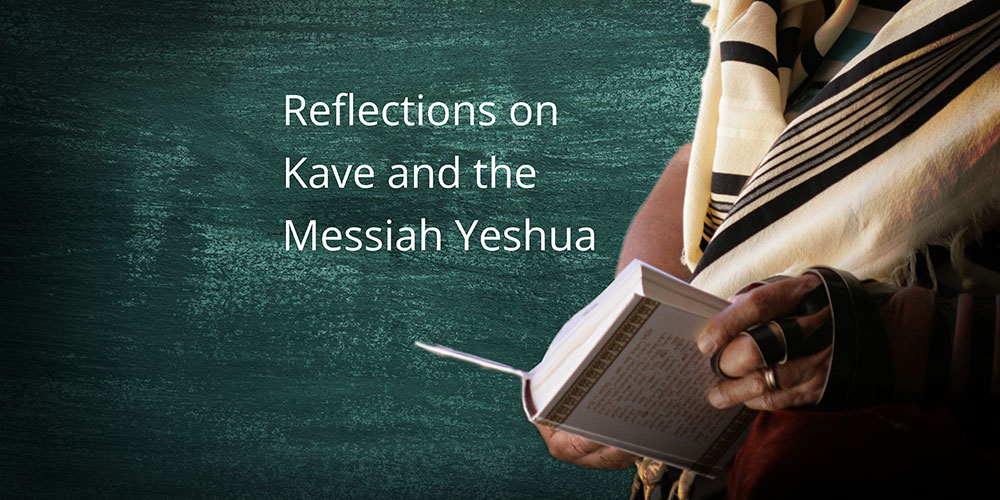The prayer ‘I have waited for your Salvation’
לישיעתך קויתי יהוה:
was originally said by our father Jacob
in Genesis 49:18 after he had prophesied
over the tribe of Dan.
It became such an important a prayer
in Jewish thought that it was prayed
not once, but three times,
with two other variations.
It is a prayer of strength against our enemies.
It is so important that it is prayed
in three different places:
1. It is prayed after reciting
the thirteen principles of faith שלשה עשר עקרים ;
2. It is prayed after the wayfarers prayerתפלת הדרך ;
3. It is prayed near the end of the bedtime shema
קריאת שמע על המטה and comes immediately after
the priestly blessing ברכת כהנים .
Why is this prayer so important?
And why is it repeated three times?
The answers to these questions are given
in the following reasons,
and also in Psalm 27 and Psalm 16.
1. It is repeated three times
because in the Shema the name of HaShem
is repeated three times with the word Echad אחד
after it at the end indicating a composite unity.
שמע ישראל
יהוה אלהינו יהוה אחד:
The composite unity of the word Echad אחד
is defined in Genesis 2:24:
“Therefore shall a man leave
his father and his mother,
and shall cleave to his wife:
and they shall be one flesh.”
על כן יעזב איש
את אביו ואת אמו
ידבק באשתו
והיו לבשר אחד:
Here ‘ONE flesh’ means a composite unity.
So the prayer is prayed three times
to emphasize the divine unity of G-d.
1. “For Your Salvation do I long, HaShem.”
לישועתך קויתי יהוה:
This time it is addressed to G-d the Father,
who is Adonai mentioned the first time in the Shema.
2. “For Your Salvation, HaShem, do I long.”
קויתי יהוה לישועתך:
This second time it is addressed to G-d the Son,
who is Elokeinu mentioned the second time in the Shema.
3. “HaShem, for Your Salvation do I long.”
יהוה לישועתך קויתי:
This third time it is addressed to G-d the Holy Spirit,
who Adonai mentioned the third time in the Shema.
Each time the prayer is said it contains
the name of the Messiah Yeshua משיח ישוע
(the word translated “Salvation”)
but the name is stated in a different order.
Thus the prayer indicates that the complete work
of redemption גאולה
found in the Messiah Yeshua משיח ישוע
provides total protection.
It is an impregnable bulwark and
an infinite defense against all enemies,
just as G-d himself is unconquerable!
This means that he will defeat
all the enemies of Israel,
including the last great
enemy of the Jewish people
which is death.
Jacob perceived this
as he saw his own death approaching.
He saw the ultimate triumph
of our Messiah Yeshua משיח ישוע ,
the Messiah of Israel, משיח ישראל
over death itself.
This gives rise to the third question
which is ‘Why did our father Jacob
use the word kiviti קויתי or kave קוה
in this prophetic prayer
and not another word?’
This question is answered by the use
of the word in Psalm 27.
Psalm 27 is a declaration
of HaShem’s protection
in the face of our enemies.
We recite this great Psalm every day
from the first day
Rosh Hodesh ראש חדש
of the month of Elul
through Shemini Atzeret שמיני עצרת .
It is also a Declaration of a
deep and intimate relationship with HaShem.
The word kave קוה is used
twice in the last verse of this psalm.
It is used the first time
after the word for faith or ‘to believe’
לולא האמנתי in the previous verse.
It is also used after the words
“land of the living” ארץ חיים
which indicates the resurrection
or eternal life.
The last enemy is death.
Here the word kave קוה
refers to the hope or the waiting
for the redemption of the Messiah משיח
through his own resurrection from the dead.
This is why the word kave קוה
and not another word is used by
our father Jacob before his death,
and why we repeat it three times
in the prayer. It is the hope
of our final redemption
and the final redemption of Israel.
This place is being prepared for us by Yeshua.
He said “Behold, I go to prepare a place for you.
In my Father’s house are many mansions.
If it were not so I would have told you.”
He has this power
because he is the Messiah משיח ,
and he triumphed over death
by his own resurrection.
This is a confirmed promise
because kave קוה is repeated twice.
When something is repeated twice
by HaShem, it is established by him,
and he will certainly bring it to pass.
It can be believed אמונה .
This gives us hope as we approach
our own death in this our own life.
We approach death,
because as the prophet cries
“all flesh is a grass,
and as the flower of the grass.”
Isaiah 40:6-8.
“The voice said, ‘Cry.’
And he said, ‘What shall I cry?’
All flesh is grass,
and all the goodliness thereof
is as the flower of the field.
The grass withers,
the flower fades,
because the Spirit of the LORD
blows upon it:
surely the people is grass.
The grass withers,
the flower fades:
but the Word of our G-d
shall stand forever.”
קול אמר קרא
ואמר מה אקרא
כל הבשר חציר
וכל חסדו כציץ השדה:
יבש חציר
נבל ציץ
כי רוח יהוה
נשבה בו
אכן חציר העם:
יבש חציר
נבל ציץ
ודבר אלהינו יקום לעולם:
In light of this,
in the last verse of Psalm 27,
the phrase ‘strengthen and encourage your heart’
חזק ויאמץ לבך
is inserted between the two times
where the phrase
‘kave el adonai–wait upon the LORD’
קוה אל יהוה
is stated. This is explained by some sages.
“Someone trying to strengthen his faith
is helped by G-d.” (Alshich)
At this point the connection with kiviti קויתי
“I long (wait, hope), HaShem, for your Salvation.”
קיויתי יהוה לישועתך
Also Malbim observes ‘that hoping
for G-d’s help is greatly different
from hoping for the aid of man.
Heartache and disillusionment are the lot
of one who is dependent on people.
Not so with G-d.
Placing one’s hope in Him is exhilarating
and brings renewed strength.’
There is another connection at this point
with Psalm 16.
There is the declaration
“I have always set the LORD
before my face;
Because he is at my right hand
I shall not be moved…
He will not allow his Holy One
to see corruption.”
שויתי יהוה לנגדי תמיד
כי מימיני בל אמוט:
לא תתן חסידך לראות שחת:
Because the Messiah משיח
did not see corruption,
my personal resurrection is
guaranteed through him.
He is always at my right hand,
and I shall not be moved.
“Therefore my heart shall be glad
and my glory rejoices:
my flesh also shall rest in Hope.
For you will not leave my soul in hell.”
לכן שמח לבי
ויגל כבודי
אף בשרו ישכון לבטח:
כי לא תעזוב נפשי לשאול:
Through the resurrection
of the Messiah Yeshua משיח ישוע ,
the Holy One,
HaShem blesses us from Zion.
“The LORD bless you from Zion” Psalm 128:5.
יברכך יהוה מציון
HaShem gives us hope, joy, and strength.
Also he gives us victory
over all our enemies,
including death.
The full force of the
reading of the Shema and its blessings
קריאת שמע וברכותיה comes upon us.
“HaShem, your G-d is true.
And Faithful is all this,
and it is firmly established for us,
that He is HaShem our G-d,
and there is none but Him,
and we are Israel, His nation.
He redeems us from the power of kings,
our King Who delivers us from the hand
of all the cruel tyrants.”
יהוה אלהיכם אמת:
ואמונה כל זאת
וקים עלינו
כי הוא יהוה אלהינו
ואין זולתו
ואנחנו ישראל עמו:
הפודנו מיד מלכים
מלכנו הגואלנו מכף
כל העריצים:
“HaShem shall reign for all eternity!”
And it is further said
‘For HaShem has redeemed Jacob,
and delivered him from a power
mightier than he.’
“Blessed are you HaShem,
Who redeemed Israel.
Lay us down, HaShem our G-d,
in peace,
Raise us up erect to life
(eternal life of the resurrection).”
יהוה ימלך לעלם ועד:
ונאמר: כי פדה
יהוה את יעקב
וגאלו מיד חשק ממנו:
ברוך אתה יהוה
גאל ישראל:
השכיבנו יהוה אלהינו לשלום
והעמידנו מלכנו לחיים:

